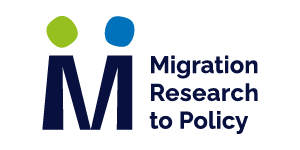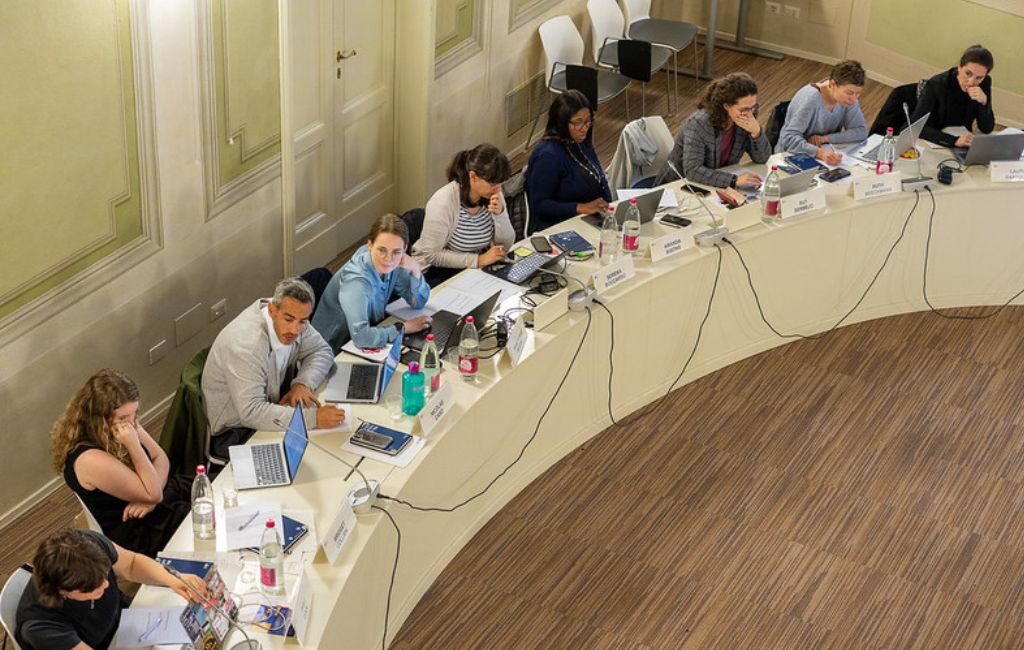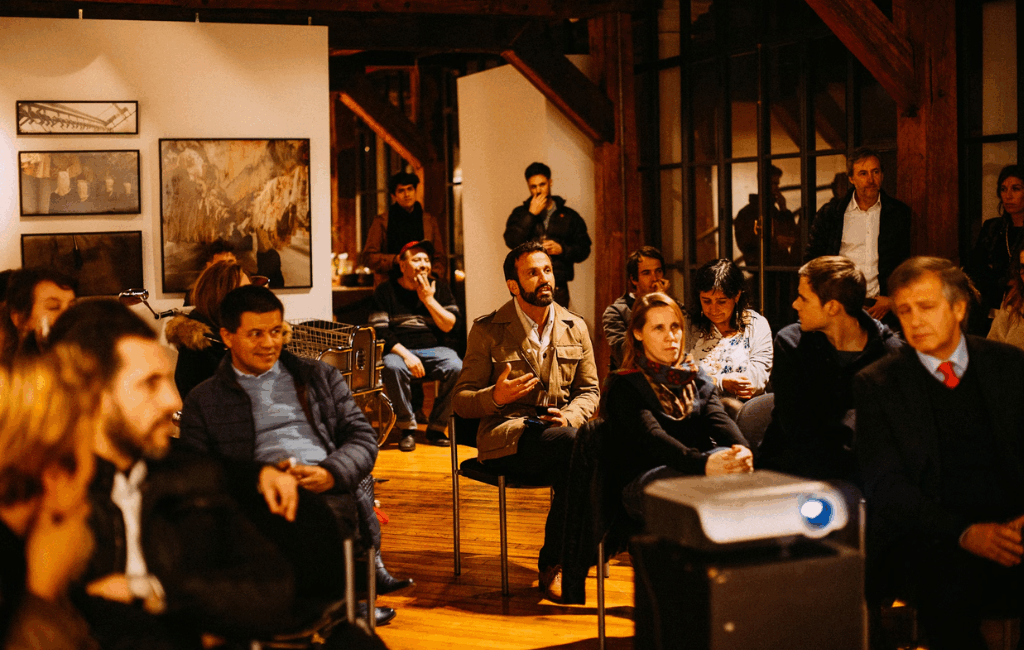
Engagement hub
What impact can research have on policy? A look at labour migration governance in Poland
Author
About
Marta Jaroszewicz , Paweł Kaczmarczyk and Katarzyna Porwit
engagement approaches
Impactful policy change doesn’t always require a major political push. In Poland, concerns over the transparency of labour migration work permits prompted a collaboration between policymakers and the Centre of Migration Research (CMR) at the University of Warsaw. CMR’s research resulted in a series of gradual but significant reforms that improved worker protections and administrative processes.
In this short, we use CMR’s research as a case study to highlight how strategic research engagement can drive meaningful policy change through trust, collaboration, and micro-actions
A changing migration landscape generated demand for research
Ten years ago, Poland became a net immigration country after decades of emigration dominance. The turning point came in 2006-2007 when the government introduced a simplified labour migration scheme. This programme, based on employer declarations of intent to hire, allowed foreigners to work for up to six months without requiring a full work permit. Initially targeted at agricultural labour shortages, the scheme expanded rapidly after Russia’s 2014 illegal annexation of Crimea, which triggered a wave of migration from Ukraine. By 2015, Poland was issuing over a million such declarations annually.
Despite the scheme’s scale, there was little oversight of job placements or labour rights protections for migrants. Experts, NGOs, and government officials began expressing concerns over potential abuses, including unverified employment and exploitative working conditions. In response, the Centre of Migration Research partnered with the think tank WiseEuropa to conduct nationwide research within a project commissioned by the Ministry of Family, Labour, and Social Policy in the framework of the European Social Fund. Surveys of employers, employment services, and qualitative studies revealed key vulnerabilities in the system: inconsistencies in registration, lack of enforcement, and discriminatory practices.
Policy impact: micro-actions with macro-effects
Micro-actions: There were several seemingly small steps we employed during the research process and in dissemination:
- Representatives of the contracting authority were involved in all stages of the research, not only following the progress but providing feedback along the way. For example, the research team was able to pre-test draft recommendations to identify which were perceived as generally feasible.
- Mid-level civil servants who were also involved in the process played a key role in persuading policymakers at ministerial or vice-ministerial levels that the findings and recommendations were not only empirically sound but also applicable.
- The involvement of internationally recognised organisations also helped the results to be seen and accepted as reliable.
- We kept the final report quite broad, providing stakeholders with an overall picture of the situation on the ground and different policy options. We also kept discussions as open as possible, so the moment of the report’s release was not a moment where communication ended.
- An intensive dissemination phase reinforced trust and assisted policymakers in operationalising research results.
Macro-effects: Our engagement strategy and the demand from policymakers enabled these research findings to catalyse meaningful reforms to Poland’s labour migration framework:
- In 2018, shortly after the project’s results were disseminated, the Polish government enacted several changes. Seasonal work permits were introduced [MJ1] to reflect labour market realities, and employers were required to sign formal contracts and notify employment offices when foreign workers started their jobs.
- Over time, additional reforms targeted the business operations of local employment services.
- By 2021, new laws established that foreign workers’ wages could not be below the national minimum wage, regardless of contract type or working hours.
What made this possible
We think that this positive and broad social impact arose due to three elements, which form what is known in policy analysis as the ‘multiple stream framework’.
#1 The problem stream: Problem setting occurred where both practitioners and experts had already been voicing a problem for several years. Long-term engagement that began long before the project bore fruit in designing a broad research study that allowed the problem to be addressed from many perspectives. The quantitative results proved to be particularly effective in convincing different stakeholders of the severity of the situation as they clearly demonstrated key gaps.
#2 The policy solution stream: The final policy changes were designed by policymakers. However, our research provided them with plausible solutions based on scientific evidence and presented them in a framework that the policymakers could then narrow down based on their feasibility. Also, representatives of policymakers were consulted at all the stages of the project’s development.
#3 The political stream: A classically understood ‘window of opportunity’ did not occur for our project. In fact, it was the opposite: there was no comprehensive migration policy reform, nor was there even thorough labour migration system reform. Instead, policy change actually took much longer than is usually prescribed in ‘multiple stream’ studies and did not arise from agenda setting at the highest political level. Policy change occurred from a consistent small-steps approach by the administrators and was not accompanied by a transformation of migration discourse at the highest level.
While there was an element of fortune that the problem, policy and political streams all played out simultaneously, this case was one of CMR’s most successful engagements in social impact. All the factors and the relationship between different actors engaged in the process were quite complex and not straightforward. Still, this case shows that impactful policy change doesn’t always require a significant political push. Instead, it can be achieved through consistent collaboration, evidence-based research, and strategic thinking.
Ready to get started?
Here are three takeaways for those aiming to replicate similar success:
- Engage Early and Build Trust: Long-term partnerships between researchers and policymakers strengthen credibility and ensure mutual understanding of policy challenges.
- Tailor Solutions to Context: Involve stakeholders throughout the research process to develop scientifically sound and operationally feasible recommendations. This increases the likelihood of real-world application.
- Focus on Incremental Reform: A “small steps” approach can foster gradual, sustainable improvements without requiring major political shifts or headline-grabbing policy announcements in complex political environments
- Engage Early and Build Trust: Long-term partnerships between researchers and policymakers strengthen credibility and ensure mutual understanding of policy challenges.
Learn more:
The three authors work at the Centre of Migration Research at the University of Warsaw, a consortium partner of the INNOVATE project and lead for the innovation pilot on city responses to displacement.
- Marta Jaroszewicz is an Assistant Professor at CMR UW and Head of the CMR Migration Policies Unit.
- Paweł Kaczmarczyk is a Professor at the Faculty of Economic Sciences and Director of CMR UW.
- Katarzyna Porwit is a Research Assistant at CMR UW.
Submit your idea for a ‘short’ to be featured on the Co-Lab.












